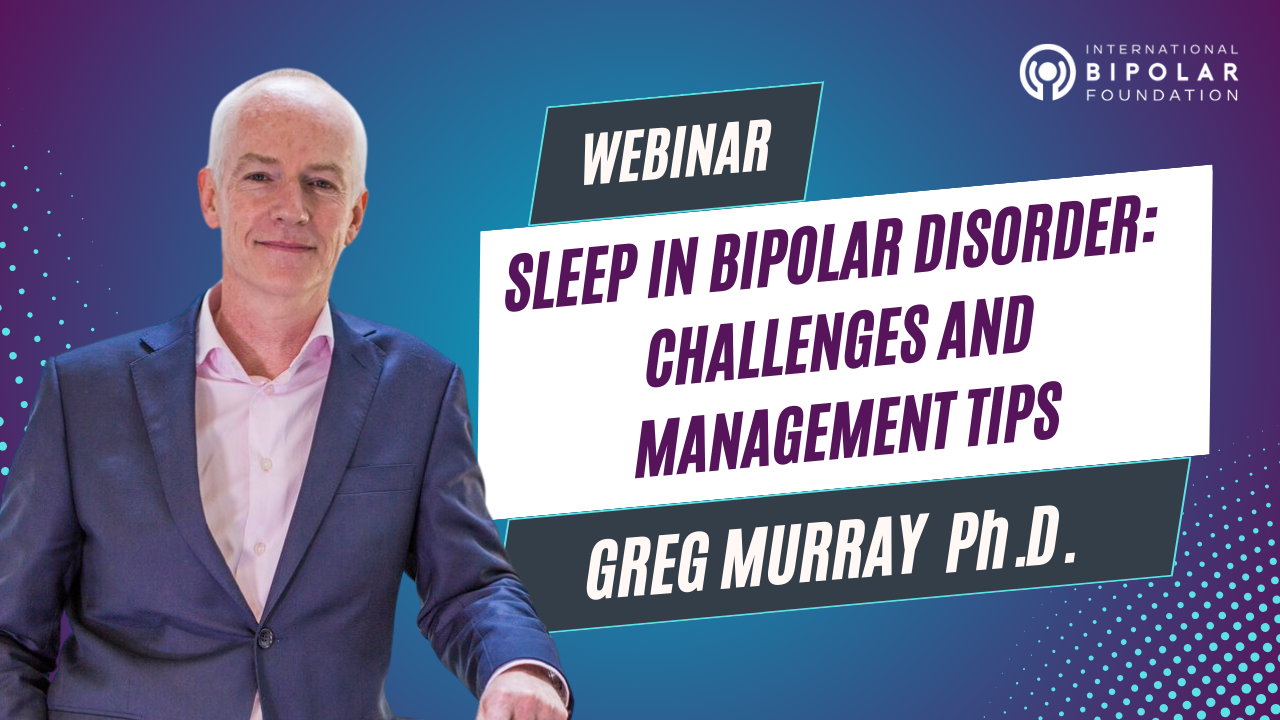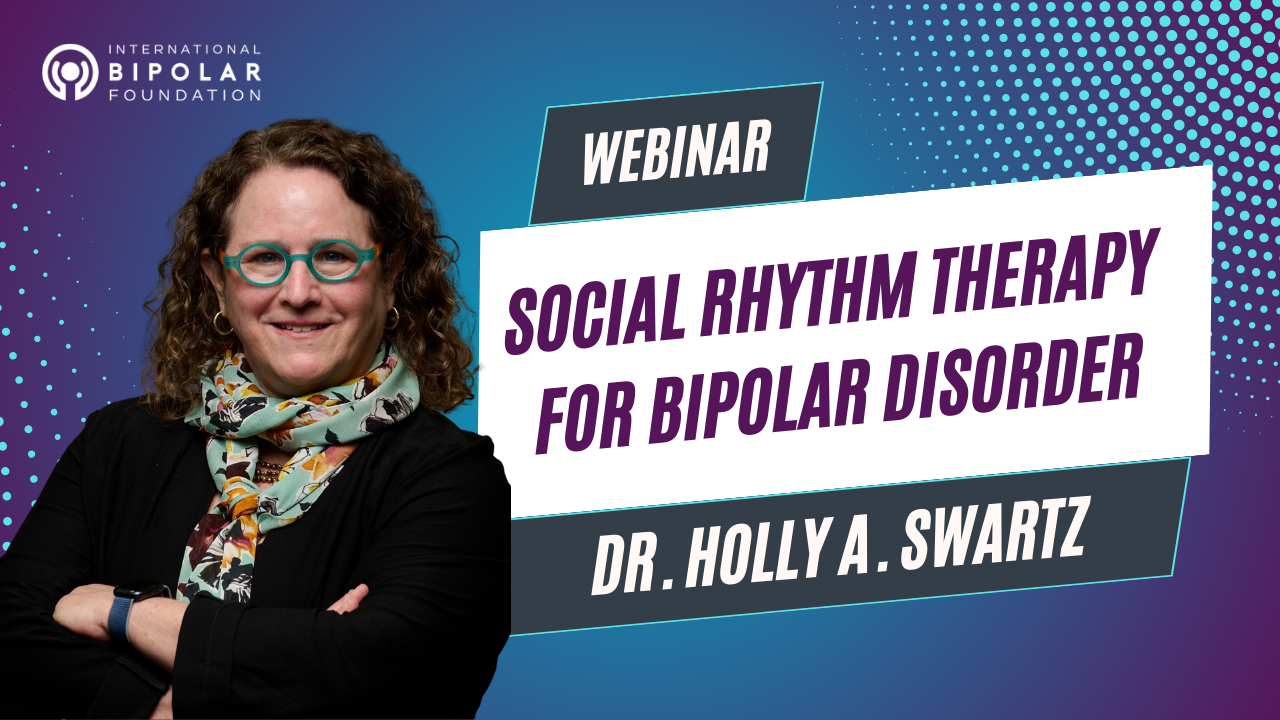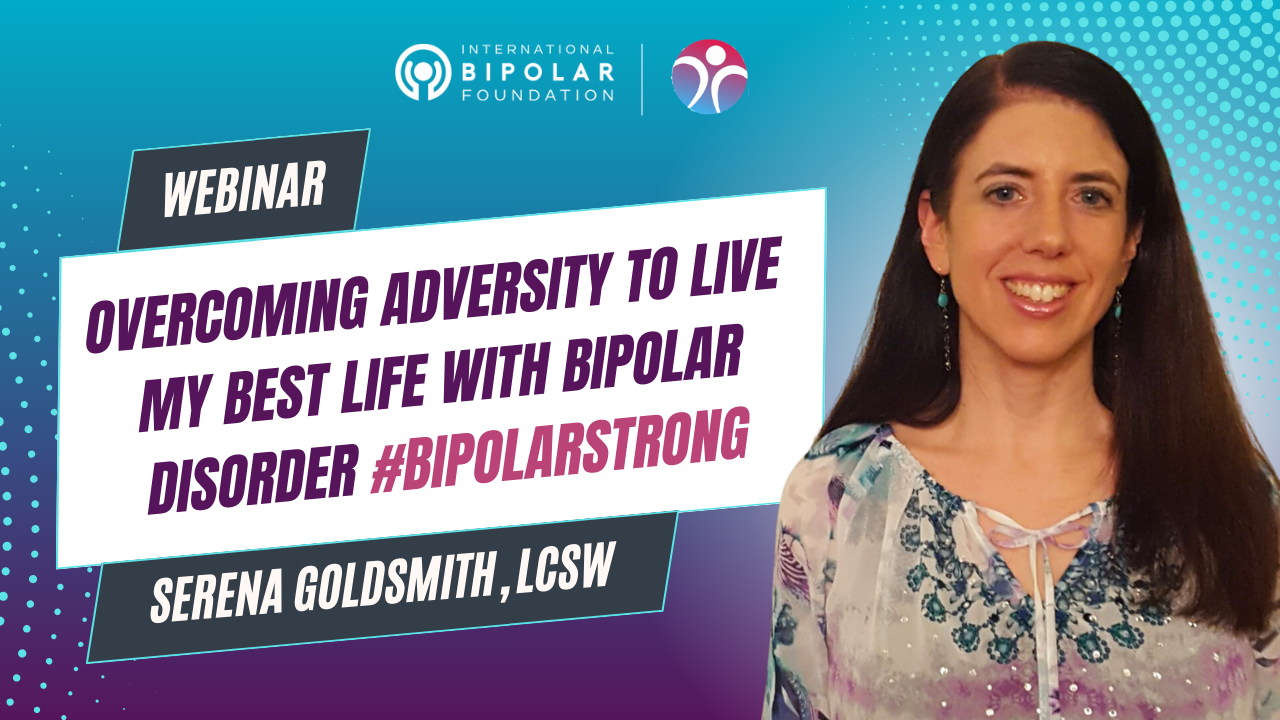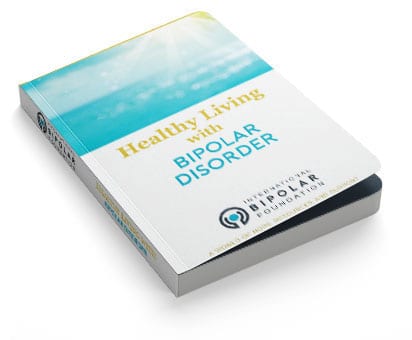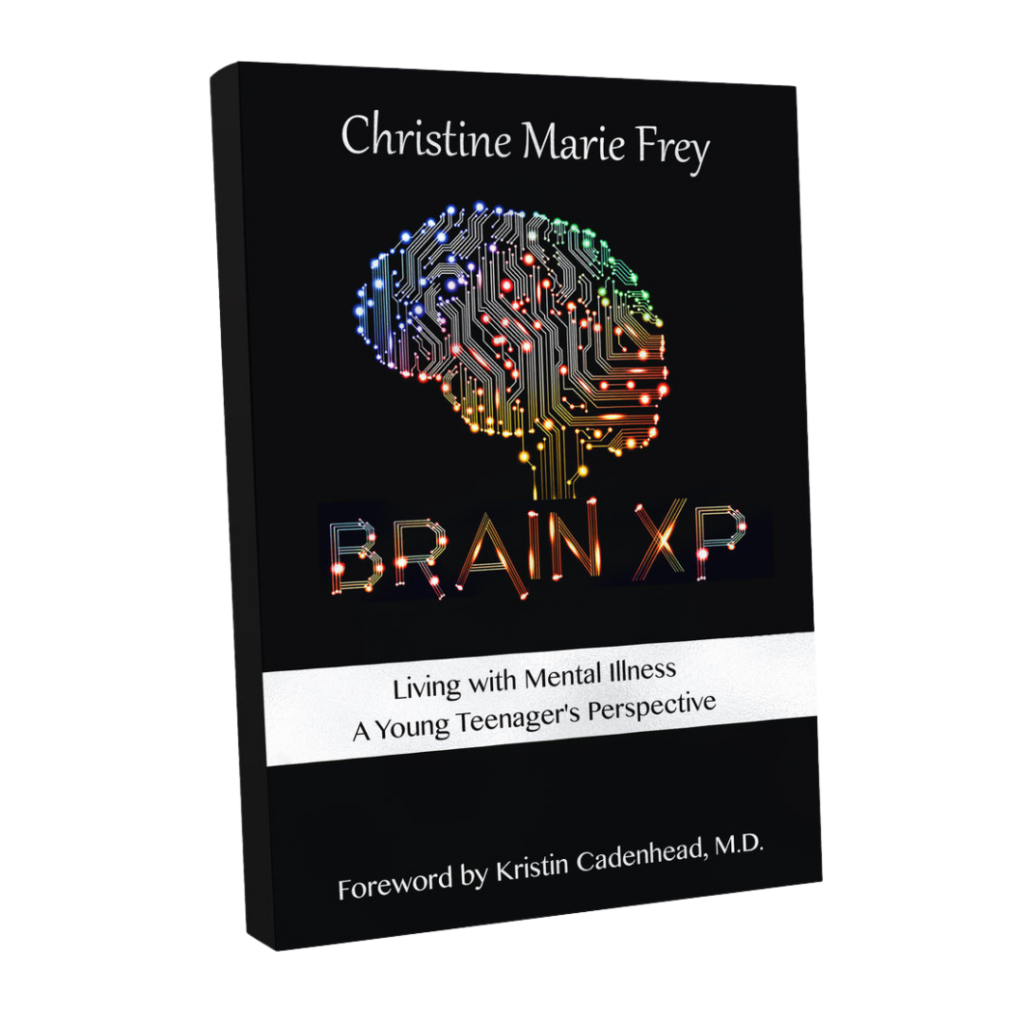IBPF is Here for You 💚
I am a teen with bipolar disorder
Being a teenager diagnosed with a condition that you do not know much about can be overwhelming. IBPF is here for you and we want you to know that a happy and healthy life full of meaningful connections is achievable. While it may take time and some adjustments to find the right treatment plan, you can work through this alongside your healthcare professionals. You’ve got this!
Bipolar disorder is a mental health condition marked by significant mood swings. Individuals may experience periods of intense energy and cheerfulness, followed by episodes of deep sadness and fatigue. In the United States. An estimated 2.9% of adolescents have a lifetime prevalence of bipolar disorder.¹ That means there are millions of teenagers living with this condition just like you.
We are glad you are here. 💚
Reference:
¹ Merikangas KR, He JP, Burstein M, Swanson SA, Avenevoli S, Cui L, Benjet C, Georgiades K, Swendsen J. Lifetime prevalence of mental disorders in U.S. adolescents: results from the National Comorbidity Survey Replication–Adolescent Supplement (NCS-A). J Am Acad Child Adolesc Psychiatry. 2010 Oct;49(10):980-9. PMID: 20855043
Common questions and responses from your peers who live with bipolar disorder.
How do you manage school or academic challenges with bipolar disorder?
I recently graduated high school, and I am currently in university. To keep up with my work, I do my homework at a consistent time every night. This can be difficult, but keeping a routine keeps me motivated. Office hours are a great resource. Asking for help from teachers/professors is daunting at first, but most are understanding. To protect myself if my grades slip or I get behind in work, I contacted my university’s accessibility office. They tailored accommodations that best suit me. Getting help and maintaining a routine has helped me succeed academically. – Olivia, 18, Diagnosed at 15
Have you discussed your diagnosis with friends, and how did they react?
I was diagnosed with Bipolar Disorder at 12 years old and, at the time, it wasn’t commonly understood by my age group. This gave me the freedom to shape the narrative I hoped people would accept before they learned about it from stigmatized sources. I find that sharing your diagnosis in this way is helpful, as true friends will always accept you for who you are. Everyone with Bipolar Disorder is different, and this individuality can be beneficial. Open-minded friends will listen and allow themselves to be educated by you, which can strengthen your friendships. – Maya, 27, Diagnosed at age 12
What are your top self-care practices?
One of my greatest self-care practices is going out in nature. To just be there and observe the natural world around me. I love birdwatching and I can sit, or hike, and see the natural world and be excited by it. I also like making art projects, painting, ceramics, and drawing. It can be hard to motivate myself to do them, but I don’t regret it when I finish them. Even if they come out strangely, at least I tried and made something. – Emily, 28, Diagnosed at 16
How do you talk to your family about bipolar disorder, and how have they supported you?
Early on, I found it helpful to have my parents come along to some appointments so that we could all be on the same page and they could get information that they needed in order to help me. This also gave them the opportunity to ask questions to doctors that I might not have thought to ask and get answers straight from professionals instead of through me. As I’ve gotten older, it’s become easier to talk about it casually and provide updates to them if needed. – Beck, 24, Diagnosed at 17
What strategies do you use to maintain a consistent sleep schedule?
I try to wake up at around the same time every day of the week, which then helps me go to bed at more consistent times, too. Getting enough physical activity during the day also helps me be ready for bed. If I don’t feel like getting out of bed during the day, I try to plan something fun that requires leaving my house. I also discussed sleep aid medications with my psychiatrist to figure out what to take and when to take it if sleeping specifically became an issue. – Louis, 20, Diagnosed at 13
It's okay. Letters to our teen selves...
What I can tell you is that you are a survivor. And for every time, you think you can not make it – you can and you will. For all the moments full of self doubt, you will develop a voice within: encouraging you, motivating you and holding on to hope you thought was long gone. Hope is never gone…

Subrina
It’s your teen years, and they’re the most difficult ones. There’s a lot of shyness (as part of your personality), discomfort in groups of friends because of your acne, and your insecurities. And you don’t know yet that you will have your first experience with bipolar disorder at the age of 17…

Ricardo
I’m sure at this age you have no idea what’s about to happen. Your life is about to take a turn, not for the worst, but for the betterment of your growth as you enter young adulthood. So let me give you a few tips that will assist you in navigating this…

Mihlali
My dear girl, let those expectations go. Things aren’t always going to play out according to your plans and will rarely happen on your schedule. If you release your expectations, then all of the beautiful things that DO happen in your life will feel like the gifts from the universe that they are…

Andrea
It’s your teen years, and they’re the most difficult ones. There’s a lot of shyness (as part of your personality), discomfort in groups of friends because of your acne, and your insecurities. And you don’t know yet that you will have your first experience with bipolar disorder at the age of 17…

Che'
I wish I had known that living on the bipolar spectrum would give me a number of what I call “super powers”—advantages, including enhanced energy, drive, enthusiasm, extroversion, creativity, problem-solving abilities. These qualities would boost my performance, and make me…

Gregg
Learn the Symptoms!
A mild to moderate level of mania is called hypomania. Hypomania may feel good to the person who experiences it and may even be associated with good functioning and enhanced productivity. Thus even when family and friends learn to recognize the mood swings as possible bipolar disorder, the person may not recognize that anything is wrong. Without proper treatment, however, hypomania can become severe mania in some people or can be followed by depression.
Severe episodes of mania or depression can include symptoms of psychosis. In periods of psychosis a person may show signs of being out of touch with reality, and may say, hear, see, or believe things that don’t match reality. Hallucinations include hearing, seeing, or otherwise sensing the presence of things not actually there and delusions are false, strongly held beliefs not influenced by logical reasoning or explained by a person’s usual cultural concepts. For example, delusions of grandiosity, such as believing one is the President or has special powers or wealth, may occur during mania; delusions of guilt or worthlessness, such as believing that one is ruined and penniless or has committed some terrible crime, may appear during depression. People with bipolar disorder who have these symptoms are sometimes incorrectly diagnosed as having schizophrenia, a different mental illness.
- Increased energy, activity, and restlessness
- Excessively “high,” overly good, euphoric mood
- Extreme irritability
- Racing thoughts and talking very fast, jumping from one idea to another
- Distractibility, can’t concentrate well
- Little sleep needed
- Unrealistic beliefs in one’s abilities and powers
- Poor judgment
- Spending sprees
- A lasting period of behavior that is different from usual
- Increased sexual drive
- Abuse of drugs, particularly cocaine, alcohol, and sleeping medications
- Provocative, intrusive, or aggressive behavior
- Denial that anything is wrong
A manic episode is diagnosed if elevated mood occurs with three or more of the other symptoms most of the day, nearly every day, for 1 week or longer. If the mood is irritable, four additional symptoms must be present.
- Poor appetite or eating too much
- Trouble sleeping or sleeping too much
- Nervousness and worry
- Loss of interest in and withdrawal from usual activities
- Feelings of sadness that don’t go away
- Irritability or restlessness
- Lack of energy
- Feelings of sadness, worthlessness or guilt
- Inability to think or concentrate
- Repeated thoughts of death or suicide
- Chronic pain or other physical problems that don’t respond to treatment
- Increased risk-taking behavior, including reckless driving or substance abuse
Helpful IBPF Webinars for Wellness and Hope!
Free Healthy Living with Bipolar Disorder Book
The Healthy Living with Bipolar Disorder book is written for both people living with bipolar disorder and their caregivers. In Healthy Living with Bipolar Disorder, you’ll find clinical information from psychiatrists, nurse practitioners, psychologists, therapists, social workers, and others. You will also find stories from real people who share how they survive and thrive with bipolar disorder. We hope that you will share your story with us someday. Together, we can build a world of hope.
From Our Blog!
For Teens Only: Could I Have Clinical Depression or Bipolar Disorder?
Every annoying adult will tell a teenager that adolescence can be a troubling time. Hormones drive moods and the struggle to find both identity and your place with friends can be a touch and go experience. Observing friends’ moods can help you gauge whether your own fall outside the typical range or not. When your feelings seem more intense—either when you’re happy or when you’re sad…
The Importance of Peer Support
I was diagnosed as a young teen with a mental illness but I hid it from others. I was so ashamed and embarrassed about it. Even my best friends didn’t know how badly I was suffering. I didn’t realize this until much later, but keeping it to myself, especially spending all of my energy hiding it from everyone, just kept the cycle of guilt and shame alive. I didn’t even realize how common it is to struggle with mental health.
Love Letter to Self!
Dear Love,
How fortunate you are to finally begin putting the pieces of your life back together. I’ll never forget the day our psychiatrist, within just two minutes, diagnosed you with bipolar disorder—a diagnosis that no one could pinpoint for over a year. Your heart sank, and a wave of mixed emotions—relief and panic—overwhelmed you. The doctor assured you not to worry, explaining that it’s completely manageable, and started you on medication that very same day.
Bipolar… that word people often use to describe unpredictable weather. You had heard of celebrities with bipolar disorder but had never known anyone personally who was affected. From that day on, tears filled your eyes for months. It was a relief, really, to understand that you weren’t crazy or losing your mind; you were suffering from an undiagnosed mental illness. The hardest part was adjusting to the new medications. You couldn’t drive, couldn’t work—all you could do was go on walks with your mom and see your Chinese doctor for acupuncture and cupping.
I remember the overwhelming emotion that gnawed at every part of you: grief. It’s okay to grieve. This isn’t a life-ending diagnosis, thankfully, but it is scary—really scary. Everything that was once normal now feels like a challenge. “How will I work? How will I date?” It felt like you were always going to be an outcast—a mentally ill one.
But I have such good news for you: It’s all okay, and it’s actually better than it ever was before. The bipolar disorder was always there—yes, it was triggered when you turned 21, but you had hints of mania throughout your life. Now, everything is under control, and even better, your bipolar disorder remains your secret. No one at work knows or can tell. Dating is not a problem at all. You’ll find that everyone has their baggage, or as you might prefer to call it, their superpower.
The meds are working wonderfully—you jump out of bed every day with a lust for life. You have friends, you exercise, you travel—you do everything you did before, but even better, because with time, you’ve grown wiser. It’s okay to be on medication; many people take meds for various reasons. I just want to emphasize how normal everything is—you are so, so normal and live a wonderful, beautiful life. This diagnosis wasn’t the end; it was the beginning.
Brain XP: Living with Mental Illness, A Young Teenager’s Perspective
Brain XP is the first book written by a young teen to other young people learning how to cope with mental health challenges. In her own teenage writing style, Christine Marie Frey describes her struggle with early onset psychosis.
Through her Brain XP Project, Christine embraces the challenge to educate and lead others to understanding and confronting the brain disorder called “mental illness”. Rather than hide, isolate, and feel embarrassed, she tackles stigma head on.
Join Our Community of Support
Are you a teenager living with bipolar disorder? You’re not alone. Explore our extensive resources, connect with supportive peers, and take the first step towards your journey to understanding and managing bipolar disorder. You can start here with us.
If you are 18 or older, and find writing to be cathartic, we invite you to join our IBPF Lived Experience Blogging Program! Find out more, here.



